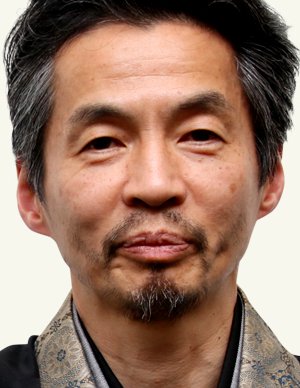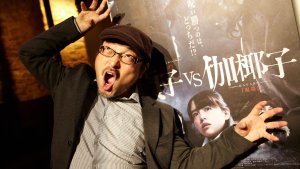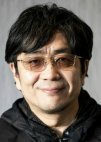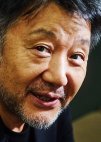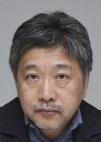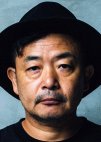Ishii Gakuryu
- Name: Ishii Gakuryu
- Native name: 石井岳龍
- Also Known as: Ishii Gakuryuu, 石井聡互, 石井總亙, 石井聰互, 石井聰亙, いしい がくりゅ
- Nationality: Japanese
- Gender: Male
- Born: January 15, 1957
- Age: 68
The success of these student films earned Ishii the opportunity to direct two further features in the same wild style. Burst City (Bakuretsu toshi, 1982) intertwined the story of a group of punk rockers protesting against the construction of a nuclear power plant with that of two bikers seeking revenge for a murder. Crazy Family (Gyakufunsha kazoku, 1984) was a scattershot satire on the Japanese nuclear family, whose characters respectively personified the underlying militarist tendencies of the elder generation, the materialism of the postwar generation, and the academic pressure on the young. Ishii’s best-known film abroad, it was certainly subversive, but suggested the limitations of the director’s early manner. The apparent madness of the family made them seem too extreme a case to be representative, and while superficially arresting, the film was less penetrating than Yoshimitsu Morita’s similarly themed Family Game (Kazoku gēmu, 1983).
Its domestic failure left Ishii unable to finance further features for ten years, but his comeback, Angel Dust (Enjeru dasuto, 1994), was an eerie thriller
which displayed a new stylistic discipline and psychological depth in its story of a psychiatrist who begins to
feel implicated in a series of murders committed by a former lover. Its themes of urban and pre-millenial angst were also central to August in the Water (Mizu no naka no hachigatsu, 1995), in which Ishii returned to his native Fukuoka to narrate a curious story of adolescent emotions set against the backdrop of an apocalyptic plague. Ultimately inconsequential, the film still had a certain beauty, its shimmering images conveying the feel of stifling summer heat. Ishii next made Labyrinth of Dreams (Yume no ginga, 1997), like Angel Dust a story of a woman’s equivocal fascination with a murderer. This, too, was a highly atmospheric film, shot imaginatively in a monochrome which reflected the visual textures of the cinema of
the fifties, when its story was set. Although these films lacked the satiric edge of Ishii’s early work, their elegant, small-scale approach seemed fruitful. By contrast, Gojoe (Gojō reisenki, 2000), Ishii’s first jidai-geki, was a cavalier reworking of Japanese history, visually striking, but marred by trite elements of fantasy. It proved a costly flop, which bankrupted the company of producer Takenori Sentō.
Apart from his feature films, Ishii has also sustained a career as a director of shorts, experimental works, and music videos for such Japanese punk banks as Anarchy and The Stalin. Among his avant-garde films, Shuffle (Shaffuru, 1981), Electric Dragon 80,000V (2001) and Dead End Run (2003) all rejected narrative detail for a near-abstract distillation of generic plots, used mainly as a vehicle for formal experimentation. In Mirrored Mind (Kyūshin: 3D Saundo kanzenpan, 2005), he seems to have combined this formalism with a renewed interest in character, focusing on an alienated actress and her emotional regeneration during a trip to Bali. Since even Ishii’s commercial films have revealed a consistent interest in innovation and experimentation, one may expect that his oeuvre will continue to develop in unpredictable directions.
(Source: A Critical Handbook of Japanese Film Directors) Edit Biography
Director
| Title | Rating |
|---|---|
| Almost People | 0.0 |
| Punk Samurai Slash Down | 6.4 |
| Bitter Honey | 6.8 |
| That's It | 6.9 |
| Isn't Anyone Alive? | 6.3 |
| Dead End Run | 6.9 |
| Panic High School | 7.1 |
Screenwriter & Director
| Title | Rating |
|---|---|
| The Box Man | 0.0 |
| The Flower of Shanidar | 7.3 |
| Mirrored Mind | 7.6 |
| Electric Dragon 80.000 V | 6.9 |
| Gojoe: Spirit War Chronicle | 6.5 |
| Labyrinth of Dreams | 7.7 |
| August in the Water | 7.3 |
| Angel Dust | 7.3 |
| Tokyo Blood | 7.0 |
| The Crazy Family | 7.7 |
| Burst City | 6.4 |
| Shuffle | 6.6 |
| Crazy Thunder Road | 6.5 |
| Attack! Hakata Street Gang | 0.0 |
| Isolation of 1/8800000 | 0.0 |
Movie
| Title | Rating |
|---|---|
|
March Comes in Like a Lion
Japanese Movie, 1991,
[Ramen Deliveryman]
(Unknown)
|
6.6
|
|
Kenju Tateshi Dai Ichi Bu Shito Hen
Japanese Movie, 1979,
[Target 12 Action Commander]
(Support Role)
|
0.0
|
TV Show
| Title | Rating |
|---|---|
|
Cinemaholic
Japanese TV Show, 2004, 56 eps
(Guest)
|
0.0
|
Articles
An Ultra Fan Guide to Shiraishi Koji: Ghosts, Ghouls and Gore
Editorials - Mar 2, 2020
Shiraishi Koji is the director of several iconic and influential J-horror films. But just what do you know about the man behind the camera? Here's a look at Koji, his life, his iconic pieces, and his life's work.

